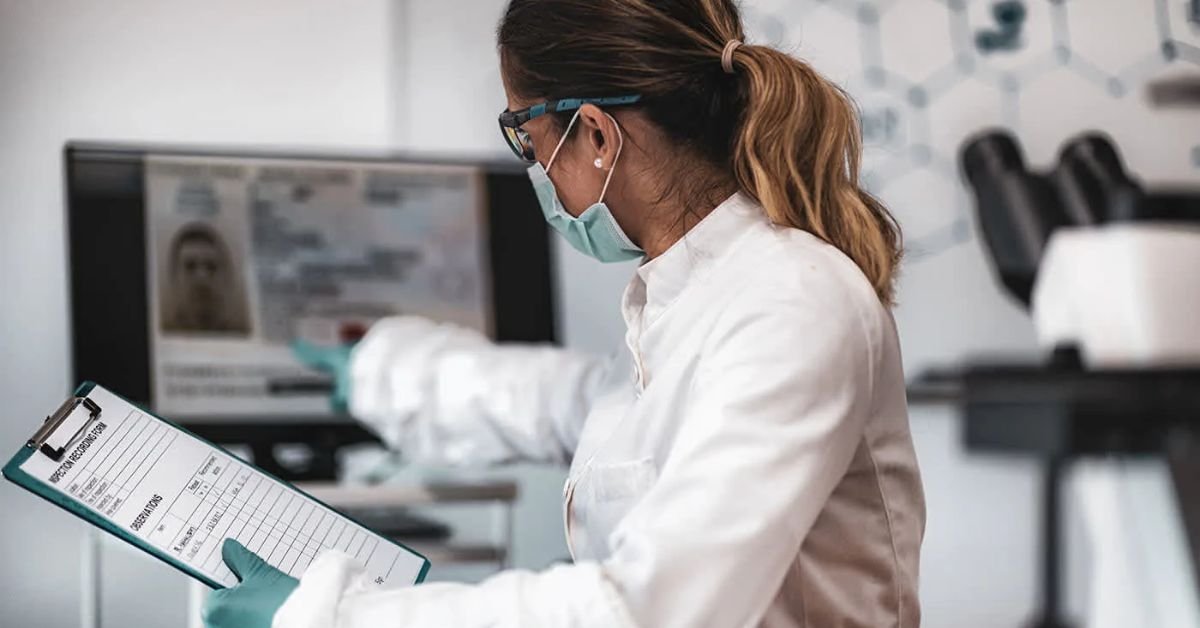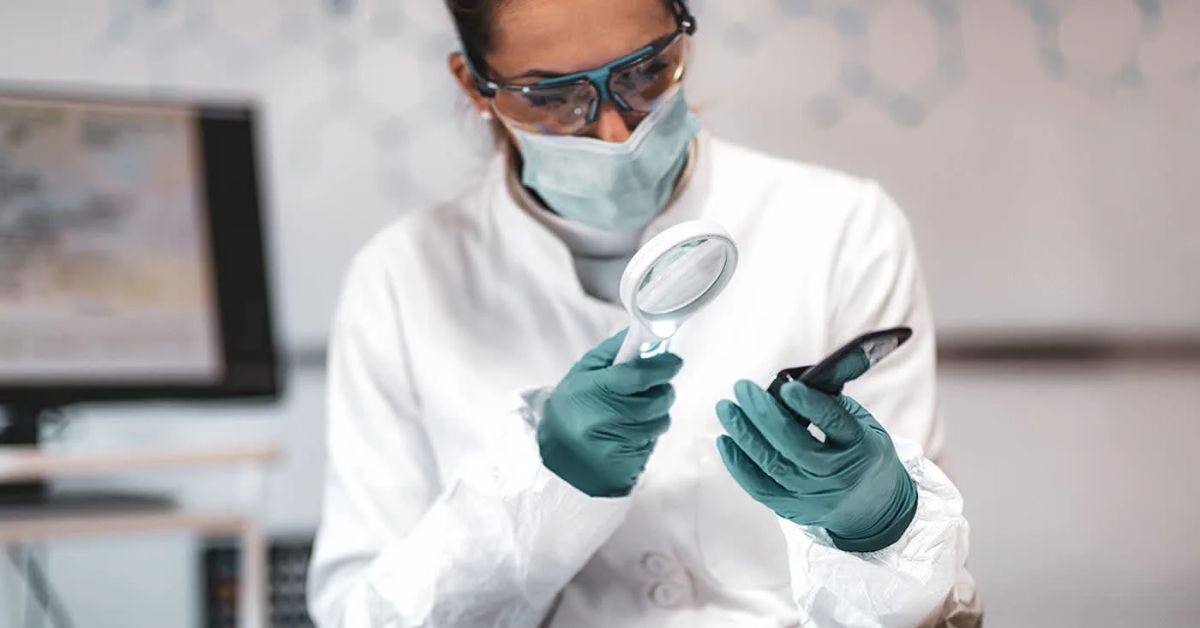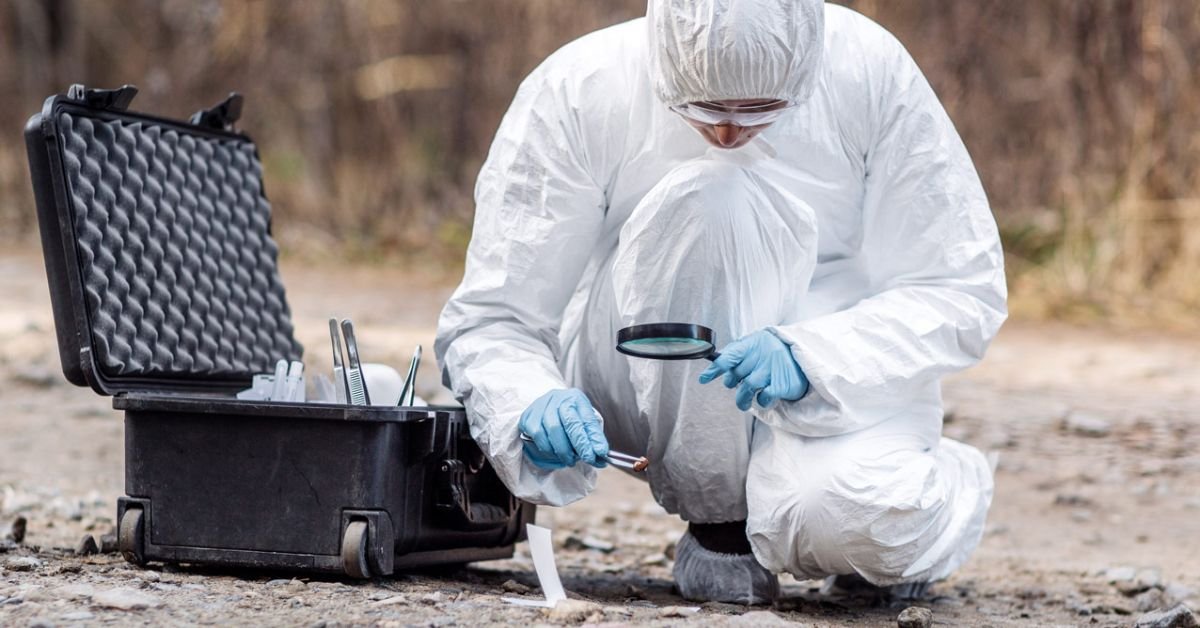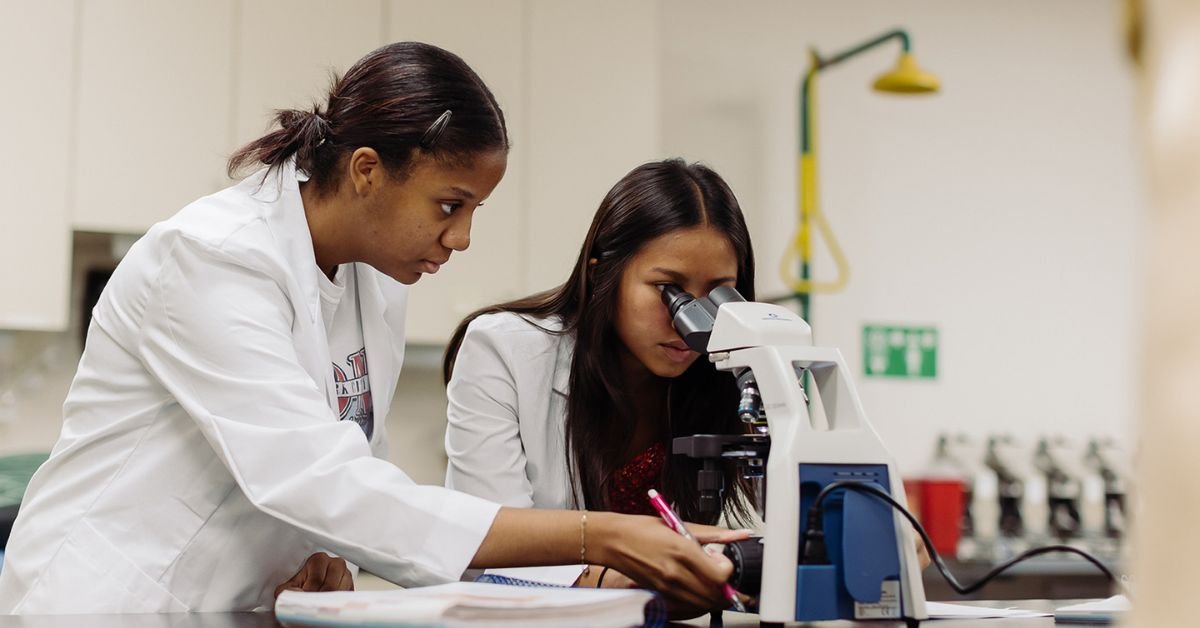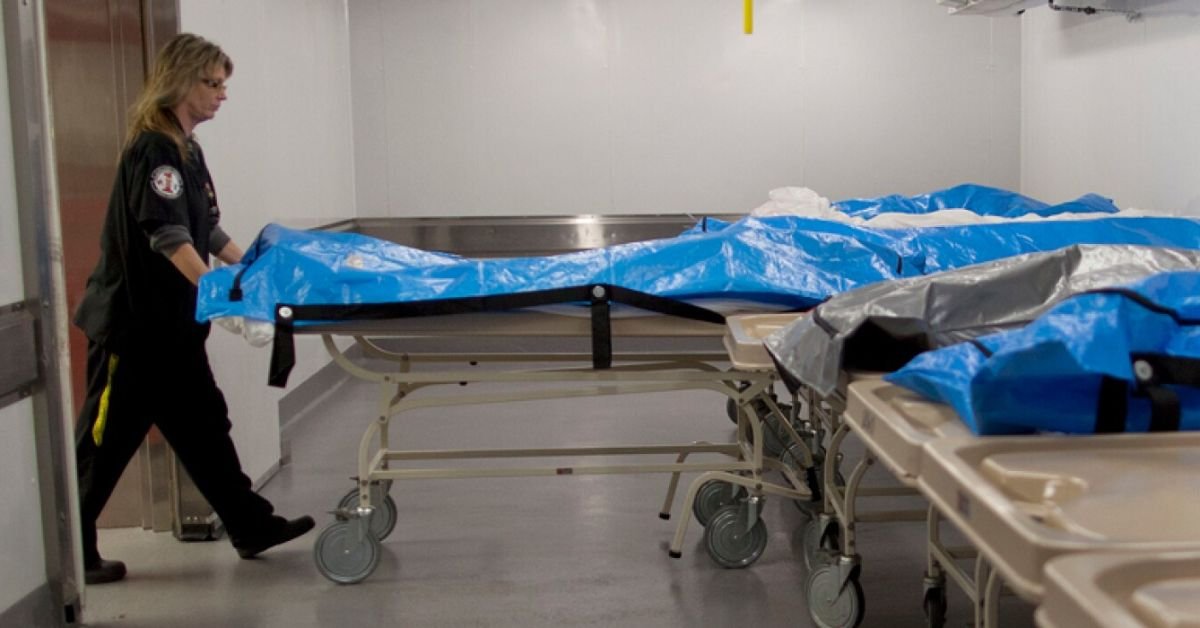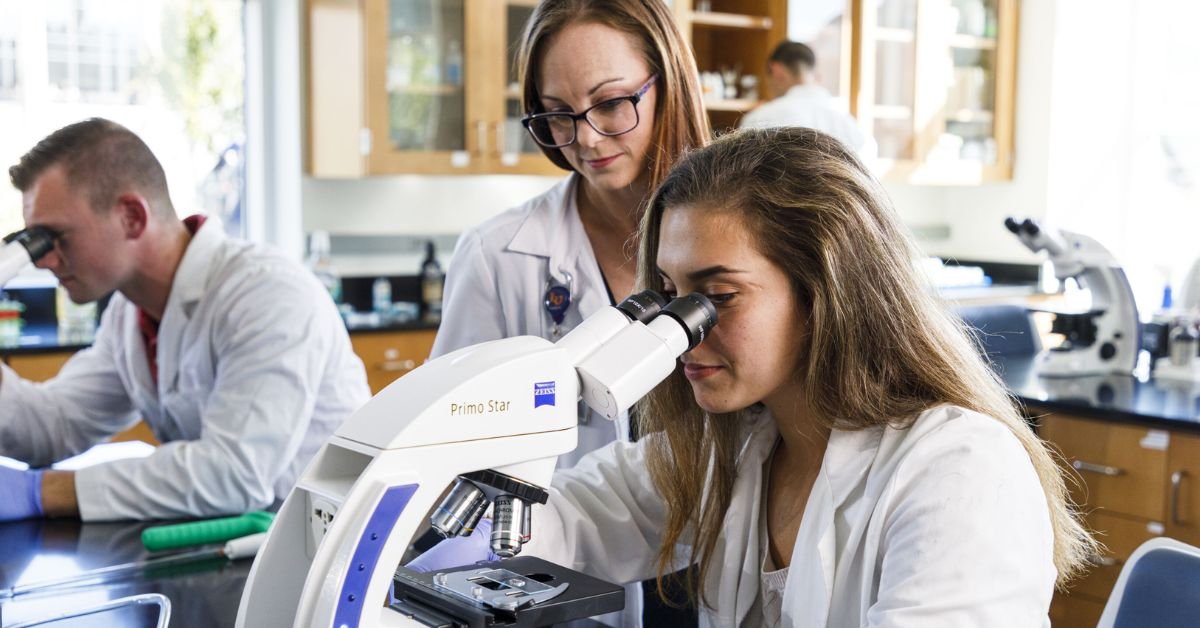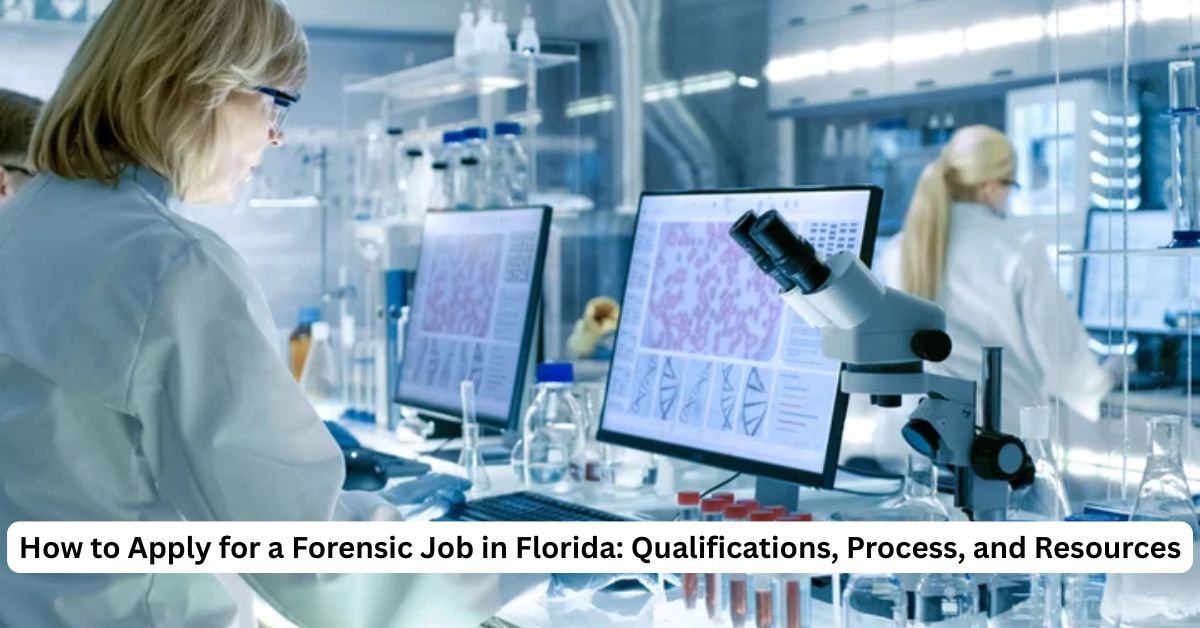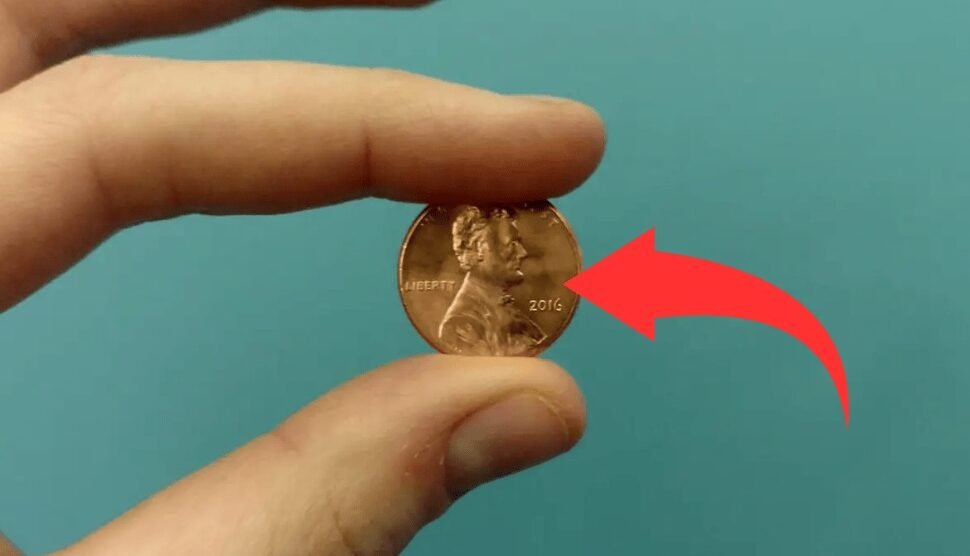Forensic professionals play an indispensable role in Florida’s criminal justice and medicolegal systems. These individuals apply scientific, investigative, and medical principles to solve crimes, process evidence, and determine causes of death. Given the importance of accuracy, ethics, and procedural integrity, Florida mandates specific qualifications for those pursuing careers in forensic science, crime scene investigation, and medicolegal death investigation.
The qualifications for forensic jobs in Florida are shaped by statutory requirements, agency standards, and certification bodies. This article provides a detailed overview of the educational, licensing, and professional prerequisites necessary to enter and advance in the forensic field within the state.
Major Forensic Career Tracks in Florida
Forensic careers in Florida span several domains. Public forensic services are delivered through:
- The Florida Department of Law Enforcement (FDLE)
- County medical examiner districts governed by Chapter 406, Florida Statutes
- Local law enforcement agencies, which employ crime scene and evidence technicians
Each role demands a distinct set of competencies and qualifications.
| Career Path | Primary Functions |
|---|---|
| Forensic Science Technicians | Analyze physical evidence in laboratory settings |
| Crime Scene Investigators (CSIs) | Collect, preserve, and document evidence at crime scenes |
| Forensic Pathologists | Conduct autopsies and determine cause and manner of death |
| Medicolegal Death Investigators | Assist medical examiners in scene investigations and evidence gathering |
Educational Requirements
Education forms the foundation for all forensic professions. Florida’s agencies prioritize candidates with rigorous academic training aligned to scientific, legal, or medical standards.
| Role | Minimum Education | Preferred Credentials |
|---|---|---|
| Forensic Science Technician | Bachelor’s degree in biology, chemistry, or forensic science | FEPAC-accredited degree programs |
| Crime Scene Investigator | Associate or bachelor’s degree in criminal justice or forensic science | Field experience in law enforcement or certification through IAI |
| Forensic Pathologist | MD or DO degree + pathology residency + forensic pathology fellowship | Board certification by the American Board of Pathology (ABP) |
| Medicolegal Death Investigator | Degree in forensic science, health sciences, or criminal justice | American Board of Medicolegal Death Investigators (ABMDI) certification |
Accreditation and Program Quality
Programs accredited by the Forensic Science Education Programs Accreditation Commission (FEPAC) ensure compliance with national standards for forensic science education. Candidates who complete FEPAC-accredited programs may be favored during hiring processes at state and local levels.
Licensing and Certification
Florida has no universal licensing body for all forensic professionals; however, certain roles require formal licensure or certification from recognized state or national agencies.
| Position | Certification or License Requirements | Governing Body or Credentialing Agency |
|---|---|---|
| Forensic Pathologist | Florida medical license + ABP certification or eligibility | Florida Department of Health, American Board of Pathology |
| Medical Examiner | Must be licensed physicians, board-certified in forensic pathology | Florida Medical Examiners Commission |
| FDLE Crime Lab Analyst | Science degree + specialized training + background check | Florida Department of Law Enforcement (FDLE) |
| Crime Scene Technician | Not licensed by state; certification strongly encouraged | International Association for Identification (IAI) or ABC |
| Medicolegal Death Investigator | No license required; certification preferred | American Board of Medicolegal Death Investigators (ABMDI) |
Medical Examiners in Florida
Under Section 406.06, Florida Statutes, each medical examiner must be a licensed physician and either board-certified in forensic pathology or actively pursuing such certification. Florida’s 25 medical examiner districts operate under the supervision of the Florida Medical Examiners Commission, which enforces uniform professional and procedural standards.
Background Screening and Ethical Conduct
Forensic professionals in Florida undergo extensive background checks due to the legal sensitivity and evidentiary nature of their roles.
| Screening Area | Description |
|---|---|
| Criminal Background Check | Mandatory for all forensic and public safety roles |
| Drug Testing | Required prior to employment and may be conducted randomly thereafter |
| Fingerprinting | FDLE fingerprint-based background verification for state employees |
| Code of Ethics | Must comply with scientific integrity, impartiality, and chain-of-custody standards |
Agencies often expect strict adherence to codes of conduct established by professional associations, such as the American Academy of Forensic Sciences (AAFS) or IAI. Misconduct, evidence mishandling, or breaches in confidentiality can result in revocation of certification or legal action.
Continuing Education and Career Advancement
Forensic science and death investigation are dynamic fields. Professionals are expected to engage in continuous professional development to remain current with scientific advancements, legal standards, and emerging technologies.
| Area of Development | Examples |
|---|---|
| Continuing Education | Certification renewals, workshops, forensic technology training |
| Advanced Credentials | DNA analysis, toxicology, digital forensics specialization |
| Professional Associations | IAI, ABMDI, ABC, AAFS, Florida Association of Medical Examiners |
Certification renewals may require proof of continued education. For example, ABMDI-certified investigators must recertify every five years and provide documentation of their professional development activities.
Florida Statutes and Oversight Bodies
The legal framework governing forensic work in Florida is comprehensive. It ensures public safety, professional competency, and the integrity of the justice process.
| Statute / Agency | Role and Function |
|---|---|
| Chapter 406, Florida Statutes | Establishes authority and duties of medical examiners |
| Florida Medical Examiners Commission | Appoints district examiners, enforces credentialing standards |
| FDLE Crime Laboratory System | Operates state labs, sets analyst training and qualification standards |
| Florida Division of Medical Quality Assurance (MQA) | Licenses and disciplines physicians and medical examiners |
Employment Outlook in Florida
As of recent labor statistics, forensic science technician roles in Florida are expected to grow by 11% over the next decade, faster than the national average. Counties with high urban populations, such as Miami-Dade, Orange, Hillsborough, and Broward, employ the largest number of forensic personnel.
Forensic pathologists, in particular, are in short supply nationwide, and Florida has taken steps to address this through enhanced training pathways and incentives.
| Position | Median Annual Salary (FL, 2024 Est.) | Growth Outlook (2024–2034) |
|---|---|---|
| Forensic Science Technician | $64,000 | +11% |
| Crime Scene Investigator | $55,000 | +8% |
| Forensic Pathologist | $215,000+ | High Demand |
| Death Investigator | $48,000–$65,000 | Stable to Moderate Growth |
Conclusion
The forensic workforce in Florida is highly specialized, and its qualifications are governed by a complex interplay of legal mandates, scientific standards, and agency-specific policies. From forensic pathologists conducting autopsies to laboratory analysts processing DNA evidence, each role demands rigorous academic preparation, legal compliance, and ethical integrity.
For aspiring professionals, entering the field requires not only a commitment to science and law but also adherence to the standards established by Florida statutes and regulatory commissions. Continuous learning, certification, and ethical conduct are fundamental to sustaining a career in this essential sector of public service.
References
- Florida Statutes Chapter 406 – Medical Examiners; Disposition of Human Remains
- Florida Department of Law Enforcement (FDLE): https://www.fdle.state.fl.us
- Florida Medical Examiners Commission: https://www.fdle.state.fl.us/MEC
- American Board of Pathology (ABP): https://www.abpath.org
- Forensic Science Education Programs Accreditation Commission (FEPAC): https://www.fepac-edu.org
- American Board of Medicolegal Death Investigators (ABMDI): https://www.abmdi.org
